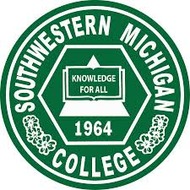
(View Complete Item Description)
This textbook is meant for first year English Composition Courses. The text covers the essentials of composition and rhetoric in a recursive manner and introduces research skills.
When you are eager to get started on the coursework in your major that will prepare you for your career, getting excited about an introductory college writing course can be difficult. However, regardless of your field of study, honing your writing skills—and your reading and critical-thinking skills—gives you a more solid academic foundation.
In college, academic expectations change from what you may have experienced in high school. The quantity of work you are expected to do is increased. When instructors expect you to read pages upon pages or study hours and hours for one particular course, managing your work load can be challenging.
The quality of the work you do also changes. It is not enough to understand course material and summarize it on an exam. You will also be expected to seriously engage with new ideas by reflecting on them, analyzing them, critiquing them, making connections, drawing conclusions, or finding new ways of thinking about a given subject. Educationally, you are moving into deeper waters. A good introductory writing course will help you swim.
Material Type:
Textbook
Authors:
Amy Locklear,
Angela Fowler,
Elizabeth Burrows,
Heath Fowler



















